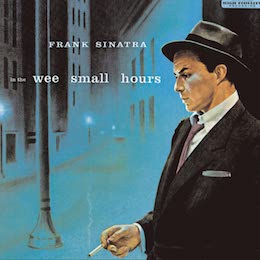Chapter 32
Elizabeth wrapped her arms around her trembling body as William’s footsteps faded away. Her breath caught in her chest and she clenched her fists, stamping her foot as she let out a throaty cry.
Tears stung her eyes. She had almost cried before he departed but had forbidden herself to do so. And I’m still not going to cry. But why had she thought he was different? When would she learn that opening her heart to a man was a huge mistake?
“I love you,” he had said. Liar! What would a man like William Darcy want with a penniless nobody? A little flirtation followed by a farewell roll in the sack, that’s what. And then back to his glamorous life.
No. I’m not going to cry.
She paced aimlessly through the apartment. In the kitchen, her gaze fixed on the yellow roses. She yanked the blooms from their vase, yelping when a thorn pierced her thumb. They were just like William: attractive on the surface, but if you went deeper, you got nothing but pain. She crushed the flowers in her hands and shoved them into the trash can.
Adrenalin pumping through her veins, Elizabeth stalked through the apartment looking for other objects on which to vent her frustration. The case from William’s jazz CD hit the wall with a crash. The delicate rosebud from Tuesday evening, which had been on the verge of opening, soon lay on the floor, its torn petals scattered. The creamy white roses that had graced the dining room table joined the yellow ones in the trash. The vase adorning her dresser soon stood empty, its former occupants now a mass of broken stems and fragrant pink petals.
Then her gaze fixed on the orchid sitting on her night table, and her frenetic activity ceased. She cradled the pot in her trembling hands and studied the beautiful blooms, her breaths quick and shallow. She set the orchid back on the table and retrieved the thick sheet of paper beside it. As she inspected William’s precise handwriting, drops of water splashed onto the page, and she realized that they were her own tears. She flung herself onto the bed and buried her face in her pillow, sobbing.

William and Allen had a long-standing arrangement designed to subtly communicate William’s plans for the night. When dropping off his date at the end of the evening, if William wanted Allen to wait, he told him so. But on those occasions when he anticipated spending the night at his date’s apartment, William exited the car without giving any instructions. This was Allen’s cue to wait 30 minutes in case of a change of plans, after which he was free to depart. On the rare occasion when William’s plans changed after Allen was gone, he was only a phone call away. This method had worked well in the past, sparing the two men the embarrassment of discussing William’s sex life, even indirectly.
Far more than half an hour had passed by the time William arrived outside; as he expected, the family car was gone. He reached into his pocket for his cell phone, swearing under his breath when he realized that it was at home and he was stranded. No taxis were in sight, not that he had expected to see one on this residential street so late at night.


It was a mystery how something so right had gone wrong so quickly. One moment she had been warm and yielding in his arms, and the next he’d found himself sprawled in an undignified heap on the floor, covered in coffee and subjected to a barrage of insulting accusations.
His shoulders slumped and he stared unseeing at the sidewalk. Not only had he never lied about being in love, he had never said those words to a woman before. Considering this first experience with declaring himself, it would be a long time before he could summon the courage to do it again.
But that wasn’t his immediate problem. He decided to walk to a busier street in search of a cab. He was unfamiliar with this part of the city and hadn’t paid attention to the route Allen took to get here, which left him little choice but to walk in a random direction and hope for the best.
A car horn in the distance proposed a better strategy: his ears might lead him where he needed to go. He listened intently, chose a likely direction and began to walk. As he trudged along, he tormented himself by replaying their argument.
“A girl—and a bed—in every port, so you never have to sleep alone.”
To his chagrin, many people believed that stereotype, as if he were a bad-boy rock musician. But classical musicians were nothing like rock stars, and in any case he had chosen to conduct himself with taste and discretion. And his reward? Accusations and contempt.
“You’d better open your little black book and find somebody else to scratch your itch.”
As though he simply wanted a woman in his bed, and didn’t care who it was! If that were true, he needn’t have looked farther than Mitzi Dalton, who had made her interest clear that very evening at the reception. William felt bile rising in his throat; he welcomed it as an alternative to the despair threatening to overwhelm him. Who was Elizabeth Bennet to treat him with so much derision, to make all these groundless accusations?
And how could she deny that she was a willing participant? If not, why had she kept moaning and touching and kissing him? Yet suddenly she had behaved as though he had pinned her down and forced himself on her. Not only that, but she had accused him of thinking that she had no right to put a stop to their foreplay. That was ridiculous; he was a gentleman. If he had misinterpreted her wishes, she had needed only to calmly ask him to stop. She shouldn’t have shouted and shoved him to the floor; it was unnecessary, and her violent reaction had turned what could have been merely an awkward situation into a volatile one. But she hadn’t given him the chance to say any of that. Instead, she had interrupted him and, yet again, misinterpreted his intentions in the worst possible way.
About a block ahead, William could see what appeared to be a well-lit intersection. He increased his pace and soon reached the corner. His head throbbed, his stomach was queasy, and he felt unsteady on his feet. He heaved an angry sigh; the last thing he needed was a dizzy spell.

Then he saw it: an unoccupied taxi half a block away. He sprang into action, his physical and emotional ailments momentarily forgotten, and sprinted in the direction of the cab. In the first scrap of good luck the universe had granted William all evening, the driver spotted him and pulled up to the curb.
William gave the driver his address and sat back, exhaling slowly. Now all he had to worry about was his doctor’s appointment that afternoon, and the fact that the woman he loved loathed him to the depths of her soul.

“Jane? Are you there? It’s Lizzy. If you’re there, please pick up. I really, really need to talk to you.”
Elizabeth stood in the kitchen, the phone clamped to her ear. She felt foolish for making this call so late at night; she was an adult, and shouldn’t need to cry on her big sister’s shoulder. But she and Jane had always been there for each other.
It was peculiar that Jane wasn’t answering the phone; it was past midnight in San Francisco, and Jane rarely stayed out late on weeknights. Then she remembered: Jane was in Sacramento on business related to a court case. Jane had a cell phone, but she almost always silenced it at night. Elizabeth tried the number anyway, but as expected, Jane didn’t answer.
A tear slid down Elizabeth’s damp cheek as she hung up the phone. She briefly considered calling Charlotte, but now was not the time. Charlotte would offer pithy, helpful advice, and eventually Elizabeth would welcome it, but tonight she wanted comfort, not straight talk.
Elizabeth wandered into the bedroom and curled up on the bed, still fully dressed. She stared at the orchid on the night table and her thoughts drifted into the past.

On William’s arrival home, he had quietly prepared for bed, hoping that sleep would give him some respite from his physical and emotional ills. But he had found it unbearable to lie alone in his oversized bed, as though the mattress might begin taunting him. Finally, he got up and wandered into his sitting room.
The anger he had earlier summoned against Elizabeth had already flickered out, leaving desolation in its wake along with a gnawing sense of guilt. At first, he had chosen to dwell on the encouragement she had given him, assuring himself that any man in his position would have believed that her desires matched his. But since arriving home, he had begun to recall other signals, ones he had disregarded because they didn’t suit his purposes.
Although she had eagerly responded to his kisses when they first entered her apartment, he now remembered the moment when she had pushed him away and had seemed ready to ask him to leave. In the kitchen, she had escaped his embrace when he had pulled her body into close contact with his. And during their pleasurable activity on the sofa, he had seen her hesitate more than once.
And when that happened, had he backed off? Had he at least paused to ask her what was wrong? No. He had turned up the heat, using her body’s responses to persuade her to continue. And yet a short time ago, he had congratulated himself for being a gentleman. He shook his head. No wonder she thought that sex was the only thing he wanted from her.
Elizabeth’s voice, steeped in sarcasm, rang in his ears:
“You’re so choked up about it that you didn’t even bother to show up for my farewell party until hours after it started.”
Had their situations been reversed, William had to admit that such a late arrival would have upset him, too. He immediately rose to his own defense: Gran had ordered him to go, so he had no choice. But that was a weak excuse. He could have refused, putting Elizabeth first; it had simply been easier to do what Gran wanted, and it had offered the side benefit of spending less time feeling like an outsider at her party.
He prowled through the sitting room like a caged panther. By force of habit, he seated himself at the piano, but the music didn’t beckon to him. Instead, it was drowned out by her angry voice.
“You couldn’t possibly love me. You told me just a few weeks ago that you don’t believe in love at first sight.”
William winced. He had indeed made that arrogant pronouncement during their walk to City Hall Park almost a month ago. He had been well on his way to falling in love even then, but had been trying to convince himself it wasn’t happening. Instead, he had convinced her.
He wandered over to his audio system and absently scanned his massive CD collection. The first CD he noticed was his Jazz Encores recording, the same one he had selected to play at Elizabeth’s apartment. With a sigh that sounded suspiciously like a whimper, he snatched the CD from its slot and shoved it into the back of the storage cabinet.
His action disturbed a group of old vinyl records in the cabinet, causing them to tip over at an angle. He reached in to set them upright, removing one on a whim. It was his mother’s favorite Frank Sinatra album. She had been a devoted fan, and William’s childhood memories included the sound of Sinatra’s voice issuing from this room, which had been hers until her death.
The album in his hand was a somber collection of ballads. Even the album cover suggested late-night loneliness, displaying a stylized sketch of a pensive Sinatra on an empty street, a thin ribbon of smoke trailing from the cigarette in his hand.
William uncovered his turntable and placed the record on it. He carefully lowered the needle and settled into his leather chair, propping his bare feet on an ottoman. He switched off the light beside his chair, plunging the room into darkness. Sinatra’s smooth voice caressed the title song, the words painfully appropriate:

In the wee small hours of the morning,
While the whole wide world is fast asleep,
You lie awake and think about the girl
And never, ever think of counting sheep.
When your lonely heart has learned its lesson,
You’d be hers if only she would call,
In the wee small hours of the morning,
That’s the time you miss her most of all.1
He sat back in his chair, staring into the darkness, and settled in for a long, lonely night.
------
1 “In the Wee Small Hours of the Morning,” music by David Mann, lyrics by Bob Hiillard. © 1955 BOURNE CO., Sony/ATV Music Publishing LLC. Sung by Frank Sinatra on In the Wee Small Hours, © Capitol Records, 1998, originally released 1955. Available on Amazon and iTunes Store. Hear on Spotify. Hear on Youtube.

